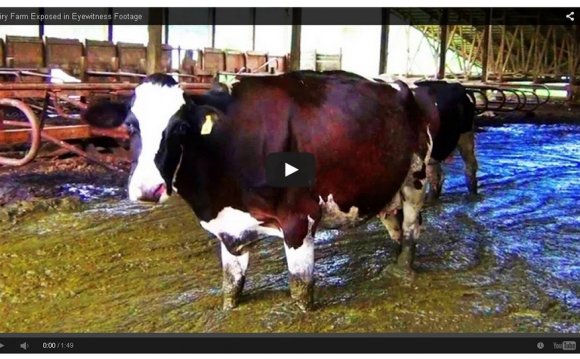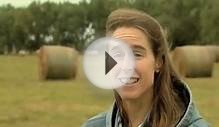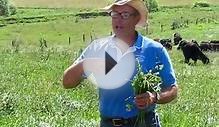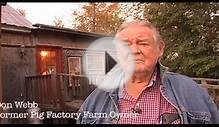
In the last few decades, consolidation of food production has concentrated power in the hands of fewer and fewer corporations. Many of today's farms are actually large industrial facilities, not 40 acres of pastures, red barns, and rows of mixed vegetable crops that most Americans imagine. These consolidated operations are able to produce food in high volume but have little to no regard for the environment, animal welfare, soil and water quality, or food safety. In order to maximize profits, industrial agriculture often trades the health of consumers and, as well as the nutritional quality of the product, for an economy of scale through consolidation and mechanization.
What is Industrial Agriculture or Factory Farming?
While there is no strict definition, industrial agriculture and factory farming refers to a modern type of agriculture which 1 ) requires high inputs of money, fertilizers, and eliminate jobs (industrial farms use "labor-saving" technologies such as pesticides in the place of weeding and heavy machinery for planting and harvesting), in the case of crop production and 2 ) for animal production is characterized by a dense population of animals raised on limited land and requiring large amounts of food, water and medical inputs. Factory farming and industrial agriculture are used interchangeably, although industrial agriculture tends to be used more to describe this intensive type of crop (plant) production and factory farms is used when referring to industrial animal production.
Industrial Crop Production:
Drive through Iowa and you can get a clear picture of industrial agriculture: the landscape is dominated by miles and miles of mostly two crops - corn and soybeans. Monocultures, or the production of only one crop over a large area, are a main component of industrial agriculture, and, in addition to growing only one or two crops, this type of agriculture is characterized by a dependence upon external inputs (like fuel and pesticides), extensive mechanization (i.e. the use of machines like harvesters to replace human labor) and consolidation of ownership. The widespread application of only one species goes against the basic principals that operate in the natural world (i.e. diversity) and because of this, many problems occur. While proponents of industrial agriculture claim to have modernized and streamlined the production of food in the United States, such evolution has been at the expense of biodiversity, environmental sustainability, stable rural communities and even individuals' health.
RELATED VIDEO




 Cattle (colloquially cows) are the most common type of large domesticated ungulates. They are a prominent modern member of the subfamily Bovinae, are the most widespread species of the genus Bos, and are most commonly classified collectively as Bos primigenius...
Cattle (colloquially cows) are the most common type of large domesticated ungulates. They are a prominent modern member of the subfamily Bovinae, are the most widespread species of the genus Bos, and are most commonly classified collectively as Bos primigenius...








